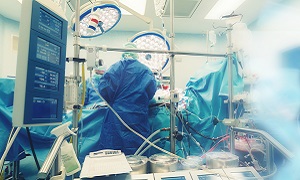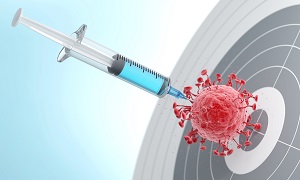Best Doctors in India for Kidney Cancer Treatment
Best Hospitals in India for Kidney Cancer Treatment
- City: Mumbai, India
Hospital Highlights:
- Fortis Hiranandani hospital was established in 2007.
- The hospital is an advanced tertiary care, multi-specialty hospital equipped with 149 beds.
- The hospital is equipped with a super ICU to provide emergency medical care to critically ill patients.
- The hospital is NABH accredited.
- The critical care facility in the hospital is augmented with the state-of-the-art facilities that facilitate speedier diagnosis and efficient monitoring.
- The hospital provides specialty medical services in cardiology, orthopedic science, pediatric science, neurology, diabetic care, urology, nephrology, ENT, obstetrics, gynecology, cosmetic surgery, bariatric surgery, neuro and spine care.
- City: Gurugram, India
Hospital Highlights:
- W Pratiksha Hospital, Gurugram, is one of the best hospitals in the NCR region. It is also a top hospital in India for IVF. Since its inception, the hospital has performed over 5500 successful IVFs. The hospital also specializes in gynecology.
- With over 20 years of experience in providing quality healthcare, the hospital is known as one of the most trusted and valued health providers in India.
- Equipped with world-class medical facilities and advanced technology, the hospital’s doctors and clinicians also have a track record of delivering excellent results. The hospital is also known for focusing on preventive well-being as much as on curative treatment.
- The hospital has earned the trust of its patients, by providing the best available treatments at affordable costs.
- City: Gurugram, India
Hospital Highlights:
- Paras hospital was established in 2006 and is the 250 bedded flagship hospital of Paras Healthcare.
- The is supported by a team of doctors of international and national repute.
- The hospital is NABH accredited and also the first hospital in the region to have a NABL accredited laboratory.
- The hospital provides specialty medical services in around 55 departments including Neurosciences, Joint Replacement, Mother & Child Care, Minimal Invasive Surgery, Gynecology and Obstetrics, Ophthalmology, Dermatology, Endocrinology, Rheumatology, Cosmetic and Plastic surgery.
- The hospital is equipped with state-of-the-art technologies.
- City: Kolkata, India
Hospital Highlights:
- Fortis Hospital, Anandapur, Kolkata is a world-class super-speciality equipped with the latest technologies in the medical world.
- The hospital is NABH accredited.
- This state-of-the-art facility specializes in cardiology and cardiac surgery, urology, nephrology, neurosciences, orthopaedics, digestive care, emergency care and critical care.
- The hospital, governed by integrated Building Management System (IBMS), has a pneumatic chute system, for quick vertical and horizontal transportation between floors, facilitating speedy transfer of patient specimens, documents, reports, and medicines to the concerned departments.
- The hospital also has a nephrology department with over 28 advanced dialysis units.
- City: Mumbai, India
Hospital Highlights:
- SL Raheja hospital is a 140-bed multi-specialty tertiary care hospital that is being managed by Fortis Healthcare Ltd.
- The hospital is a benchmark in healthcare and medical facilities in the neighborhood of Mahim & the western suburbs.
- L.Raheja Hospital, Mahim has one of the most effective ICU and Casualty care services.
- The hospital provides specialty medical services in Cardiology, Oncology, Neurology, Orthopedics, Mother & Child Care, and in Diabetes.
- City: Mumbai, India
Hospital Highlights:
- Wockhardt Hospitals were established in the year 1973, originally called First Hospitals and Heart Institute.
- Wockhardt Hospitals are super specialty health care networks in India, nurtured by Wockhardt Ltd, India’s 5th largest Pharmaceutical and Healthcare company.
- Wockhardt Hospitals is associated with Partners Harvard Medical International, an international arm of Harvard Medical School, USA.
- Wockhardt Heart Hospital performed India’s first endoscopic heart surgery.
- The hospital has a state-of-the-art infrastructure equipped with the latest technologies and modern equipment.
- It has special Centers of Excellence dedicated to the major specialties to provide hassle-free and high-quality clinical care.
- City: Gurugram, India
Hospital Highlights:
- The CK Birla Hospital in Gurugram is a NABH-accredited multi-specialty hospital.
- The hospital strives to increase the quality of healthcare by focusing on UK NHS nurse and midwife training requirements. Policies and practices derived from the National Institute for Health and Treatment Excellence (NICE) recommendations in the United Kingdom ensuring that a strong focus on safety, high-quality clinical care, and sanitation is maintained.
- The hospital’s cutting-edge technology and facilities allow for real-time communication and seamless collaboration among caregivers, ensuring accuracy and the best possible results. Those with foreign experience and accreditations make up part of the hospital’s team of clinicians.
- City: Ahmedabad
Hospital Highlights:
- As a member of the Apollo Hospitals Group, Apollo Hospitals International Limited, Ahmedabad is one of the most popular and sought-after medical facilities in Gujarat.
- Through its 6 Centres of Excellence and various affiliated branches, which cover all specialties and subspecialties, the hospital provides the most advanced clinical services.
- Since its inception in 2003, the hospital has been providing each patient with the most up-to-date medical equipment and state-of-the-art technology.
- With more than 150 successful organ transplants, including liver and renal transplants, the facility has been able to build a strong and extensive organ transplant program.
- In addition to performing 600 surgeries and caring for over 1800 patients on an IP basis, the hospital sees more than 18,000 patients on average in the outpatient department.
- With one of the biggest cardiology teams in the area, the hospital provides state-of-the-art regional care treatment in Cardiac Sciences.
- Additionally, the hospital offers a broad range of Neuro Interventional techniques to help stroke patients recover more quickly.
- City: Noida, India
Hospital Highlights:
- Jaypee Hospital is the flagship hospital of the Jaypee Group.
- This hospital has commissioned 525 beds in the first phase and has been planned and designed as a 1200 bedded multi-specialty facility.
- It holds the accreditation of the NABH and NABL.
- The hospital has state-of-the-art infrastructure equipped with the latest technologies and modern equipment like 64 Slice PET CT, Dual Head 6 Slice SPECT CT, Gamma Camera, and Da Vinci Robotic Surgery for comprehensive robotic surgical solutions.
- It has special Centers dedicated to the major specialties to provide hassle-free and high-quality clinical care.
- City: Mumbai, India
Hospital Highlights:
- Reliance Hospital is one of the best super-specialty care hospitals in Navi Mumbai.
- The main purpose of this hospital is to become a trustworthy place for the best health and hope for society. The hospital is well connected to the suburbs of Mumbai and Navi Mumbai.
- The hospital has various specialty departments, viz., Accident & Emergency, Anesthesiology, Dental Services, Dermatology, Diabetology, Dietetics Nutrition, Endocrinology, ENT, Gastroenterology, General Surgery, Gynaecology And Obstetrics, Hepato Pancreato Biliary Surgery, Infectious Disease, Internal Medicine, Interventional Radiology, Laboratory Medicine, Minimal Access Laparoscopic Surgery, Nephrology, Neurosciences, Opthalmology, Orthopaedics, Paediatrics, Pain Management Palliative Care, Physical Medicine Rehabilitation, Plastic And Reconstructive Surgery, Psychiatry, Pulmonary Medicine, Radiology, Rheumatology, Transplant, Urology Andrology, Vascular Surgery
Kidney Cancer
Symptoms
Kidney cancer generally doesn’t show any signs or symptoms in the early stages. In time, there might be certain signs and symptoms which can include the following:
- Blood in your urine
- Pain in your back or side
- Loss of appetite
- Unexplained weight loss
- Tiredness
- Fever
If you keep experiencing any persistent signs or symptoms that seem worrisome, you should consider making an appointment with your doctor.
Causes
In the majority of cases, doctors are not sure, what exactly the cause of kidney cancer is. However, they do know that kidney cancer begins when certain cells in the kidney develop certain changes or mutations in their DNA. A cell’s DNA contains all the instructions on what to do. The changes instruct the cells to grow as well as divide rapidly. Thus, these accumulating abnormal cells form a tumor which may extend beyond the kidney. Some cells can also break off and spread to other parts of the body.
Certain factors are known to increase the risk of kidney cancer. They include the following:
Older age- With age, your risk of kidney cancer also increases.
Smoking- Smokers have a greater risk of kidney cancer than those who don’t smoke. If you quit smoking, the risk of kidney cancer decreases.
High blood pressure (hypertension)- High blood pressure also increases your risk of kidney cancer.
Treatment for kidney failure- People who receive long-term dialysis to treat chronic kidney failure are also at risk of developing kidney cancer.
Obesity- Obese people have a high risk of kidney cancer as well, as compared to people having a healthy weight.
Family history of kidney cancer- If family members have had the disease, then the risk of kidney cancer gets higher.
Certain inherited syndromes- People who are born with certain inherited syndromes can also have a higher risk of kidney cancer. Some of these syndromes include von Hippel-Lindau disease, Birt-Hogg-Dube syndrome, hereditary papillary renal cell carcinoma, tuberous sclerosis complex, or familial renal cancer.
Diagnosis
There are multiple tests and procedures used in the diagnosis of kidney cancer. They include:
Blood and Urine tests
Imaging tests
Kidney biopsy
A kidney biopsy involves your doctor removing a small sample of cells from a suspicious area of your kidney. The sample is next tested in a lab to look for any signs of cancer. This procedure is not always needed.
Once your doctor is able to identify the kidney lesion that might be kidney cancer, the next step for him/her is to determine the extent or stage of cancer. For this, additional CT scans or other imaging tests might be required, if your doctor feels appropriate.
The stages of kidney cancer are indicated from I to IV. The lowest stages indicating the cancer is confined to the kidney, and at stage IV, the cancer is considered advanced and might have spread to other areas of the body.
Treatment
Treatment options generally depend on various factors, which include overall health, type, and stage of kidney cancer, personal preferences, etc.
Surgery
Embolization
Cryoablation
Chemotherapy

Radiation Therapy
Immunotherapy
Targeted therapy
Prevention
To reduce your risk of kidney cancer, it is important to take steps to improve your overall health. If you smoke, try to quit. Work to maintain a healthy weight as well, if you are obese or overweight.
If you are having high blood pressure, it is important to keep it in control.

















